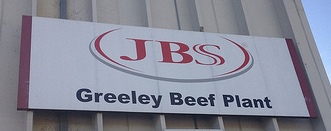The U.S. economy is currently stronger than it was in 2014. The good news is the Colorado is outperforming the U.S. in three key areas:
• The Colorado rate of population growth in 2015 is projected to be 1.6% vs. 0.7% for the U.S.
• The Colorado rate of job growth in 2015 is currently projected to be 3.0% vs. 2.2% for the U.S.
• The recently released GDP data shows that Colorado outperformed the U.S. in the rate of growth, 4.7% vs. 2.2% in 2014.
Currently, the strengths of the national economy outnumber the economic risks. With that in mind this post reviews the manner in which the risks might impact the Colorado economy. For each risk the impact on Colorado is highlighted in italics.
The Economic Risks
The Fed – Janet Yellen indicated there are still issues with the labor market. These concerns include finding trained workers and weak wage growth.
Colorado’s low unemployment rate has caused companies to have difficulty finding trained workers in such industries as construction and the high tech sector. Areas of strong wage growth have occurred in occupations where there is high demand for workers.
Real GDP – The rate of growth in business investments is lackluster. Increased demand for goods and services will drive companies to invest in new equipment, software and buildings.
The decrease in the price of oil has caused Colorado companies in the Oil and Gas industry to curtail investments in their business.
The Dollar – The strong dollar has made U.S. goods/exports less competitive in foreign markets.
The strong dollar is one of many factors that could challenge Colorado exporters in 2015.
Industry Sentiment – Manufacturing may remain sluggish through the end of the year.
The growth of Colorado manufacturing output was disappointing in 2014. That is unlikely to change in 2015.
Housing – In some parts of the country the rate of housing price appreciation may be problematic.
It will be more difficult to find attainable and affordable housing as a result of the sharp increases in housing prices. These rising prices will cause the state’s rate of inflation to increase.
Price of Oil – Low oil prices have benefited consumers (lower prices at the pump) and some industries, but they have hurt the extractive industries.
Through the first half of the year, consumers have saved about $480 with lower gasoline prices. Currently, it is not possible to measure the impact of cheaper oil on the Oil and Gas industry.
International Situations – The current global situational and foreign policy challenges to the U.S. economy currently include Iran, Syria, China, Russia, Greece, Israel, Cuba, the EU, and Ukraine.
At the moment Colorado shares a level of risk similar to the U.S. as a result of situational and foreign policy challenges.
The strengths of the national economy have created momentum that will further strengthen the U.S. and Colorado moving into 2016; however, if several of these economic risks materialize at the same time, then the health of the U.S. and Colorado economies might be jeopardized.